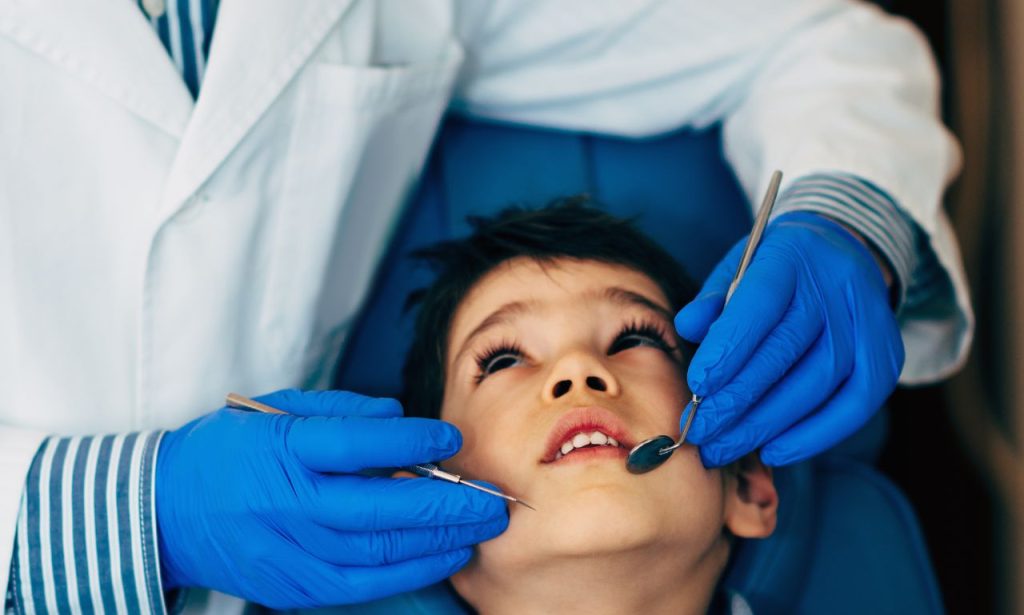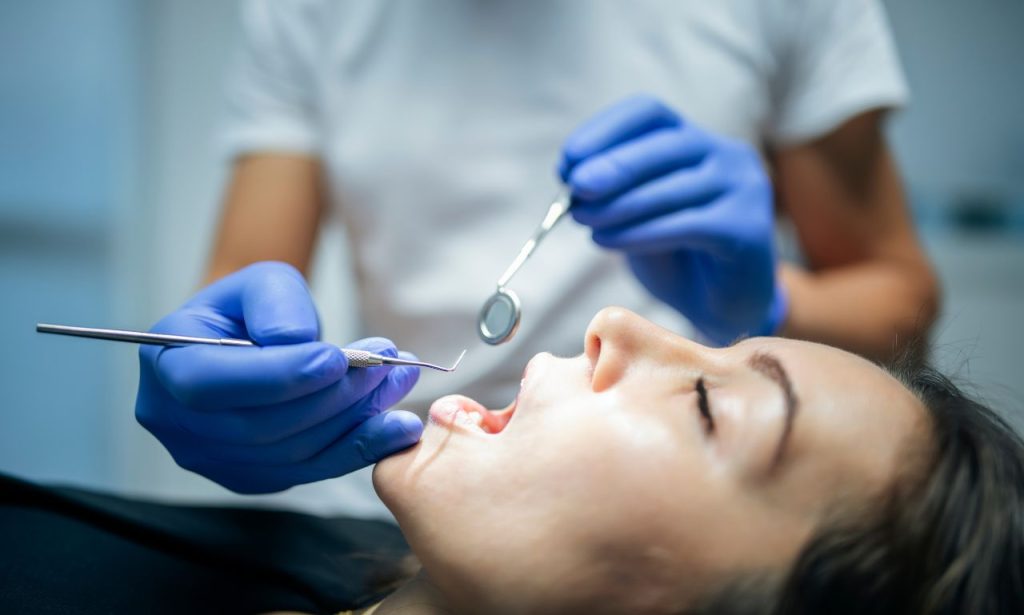Dental hygiene is an essential aspect of overall health, often underestimated until issues arise. Regular dental cleanings are a cornerstone of maintaining not only oral health but also general well-being. You might wonder, “How long does a regular dental cleaning take?” This article dives deep into the process, shedding light on what happens during a dental cleaning, why it’s important, and how often you should schedule these appointments. We’ll explore each step, provide useful visuals, and link to further reading, ensuring you have a comprehensive understanding of this crucial healthcare practice.
What Is Dental Cleaning?
Dental cleaning, also known as prophylaxis, is a preventive procedure performed by a dental hygienist or dentist. It involves the removal of plaque, tartar, and stains from the teeth, ensuring that your mouth remains healthy. This process is essential in preventing gum disease, cavities, and other oral health problems. Regular dental cleanings help maintain the health of your teeth and gums while also contributing to your overall health.
The Importance of Dental Cleaning
Dental cleanings are vital for several reasons:
- Prevention of Oral Diseases: Regular cleanings help prevent gum disease and cavities.
- Early Detection of Issues: Routine visits allow for early detection of potential problems.
- Overall Health: Poor oral health can lead to systemic issues such as heart disease.
How Long Does a Dental Cleaning Take?

The duration of a dental cleaning can vary based on several factors, but typically, a regular dental cleaning takes about 30 to 60 minutes. This timeframe can change depending on the patient’s oral health, the type of cleaning required, and whether additional procedures like X-rays are needed.
Factors Influencing the Duration of a Dental Cleaning
- Oral Health Status: Patients with good oral hygiene may require less time.
- Presence of Plaque and Tartar: More buildup means a longer cleaning time.
- Type of Cleaning: Regular cleanings are quicker than deep cleanings.
- Additional Procedures: X-rays or fluoride treatments can add to the time.
How Often Should You Get a Dental Cleaning?
Most dentists recommend getting a professional dental cleaning every six months. However, some individuals may need more frequent cleanings, especially if they have a history of gum disease or other oral health issues. Regular cleanings help maintain oral health and prevent the buildup of plaque and tartar.
Personalized Cleaning Schedules
Your dentist might suggest a personalized cleaning schedule based on your oral health needs. Factors such as smoking, diabetes, and a predisposition to gum disease can influence how often you should get a cleaning.
Why Are Dental Cleanings Important?
Dental cleanings play a crucial role in maintaining oral health. They help prevent gum disease, cavities, and bad breath. Regular cleanings also allow your dentist to monitor your oral health and catch any issues early.
Benefits of Regular Dental Cleanings
- Prevention of Gum Disease: Regular cleanings remove plaque and tartar that can cause gum disease.
- Cavity Prevention: Cleanings help prevent the formation of cavities by removing plaque.
- Oral Cancer Screening: During cleanings, dentists check for signs of oral cancer.
- Overall Health: Good oral hygiene is linked to better overall health.
Elements of Professional Teeth Cleaning
A professional teeth cleaning involves several key elements, each playing a vital role in maintaining your oral health.
Scaling
Scaling is the process of removing plaque and tartar from the surface of your teeth and below the gumline. This is typically done using specialized dental tools.
Polishing and Flossing
After scaling, your teeth will be polished to remove surface stains and make them smooth. Polishing helps prevent plaque buildup. Flossing is also performed to remove any remaining debris between your teeth.
Fluoride Treatment
Fluoride treatment is often administered after cleaning to help strengthen your teeth and prevent cavities. This treatment involves applying a fluoride gel or varnish to your teeth.
Dental X-rays
Dental X-rays may be taken to get a comprehensive view of your oral health. X-rays help detect issues that are not visible during a regular examination, such as cavities between teeth or bone loss.
Preventive Treatments
In some cases, your dentist might recommend additional preventive treatments such as sealants or antimicrobial rinses to protect your teeth and gums.
Are Teeth Cleanings Covered By Insurance?
Most dental insurance plans cover the cost of regular dental cleanings. However, it’s always a good idea to check with your insurance provider to understand what is covered and whether there are any limitations or requirements.
Understanding Your Coverage
Insurance coverage can vary widely. Some plans may cover two cleanings per year, while others might include additional cleanings for patients with specific health conditions.
What Does a Teeth Cleaning Entail?
A typical teeth cleaning appointment involves several steps. Understanding what to expect can help you feel more comfortable during the process.
Initial Examination
Your dental hygienist will start with an initial examination of your mouth, checking for any obvious issues such as inflamed gums or cavities.
Scaling
Using a small mirror to guide them, the hygienist will use a scaler to remove plaque and tartar from around your gum line and between your teeth.
Polishing

Once your teeth are free of tartar, the hygienist will polish your teeth using a high-powered electric brush and a gritty toothpaste.
Flossing
Flossing is performed to ensure that all debris is removed from between your teeth. This step also helps identify any areas that may bleed or need more attention.
Rinsing
You will be asked to rinse your mouth to remove any remaining debris. This rinse might contain fluoride or an antimicrobial agent.
Fluoride Treatment
If recommended, a fluoride treatment will be applied to help protect your teeth against cavities.
Final Examination
Your dentist will perform a final examination to ensure that your teeth and gums are healthy and to discuss any findings or recommendations.
Conclusion
Understanding the importance and process of dental cleanings can help you maintain better oral health. Regular dental cleanings are crucial for preventing oral diseases and ensuring overall health. By knowing what to expect and how long a regular dental cleaning takes, you can approach your dental visits with confidence and ease.
ALSO READ: How Long Does Driver’s Foot Last?
FAQs
Maintaining good oral hygiene between cleanings is crucial. Brush your teeth twice a day, floss daily, and use an antimicrobial mouthwash. Avoid sugary foods and drinks, and consider using a toothpaste with fluoride.
After a dental cleaning, your teeth may feel smoother and your mouth freshener. Some people experience slight sensitivity, but this usually subsides quickly. It’s important to maintain good oral hygiene practices to keep your mouth healthy.
In most cases, you can eat immediately after a dental cleaning. However, if you received a fluoride treatment, your dentist might recommend waiting 30 minutes to an hour before eating or drinking.
If you experience anxiety about dental cleanings, try discussing your concerns with your dentist. They can explain the process and offer options to help you feel more comfortable. Some patients find that listening to music or practicing deep breathing techniques can help reduce anxiety.
Signs that you may need dental cleaning include bad breath, bleeding gums, and plaque buildup. Regular dental check-ups can help detect these signs early.
Yes, there are different types of dental cleanings, including regular cleanings, deep cleanings (scaling and root planning), and periodontal maintenance cleanings. Your dentist will recommend the type of cleaning based on your oral health needs.




